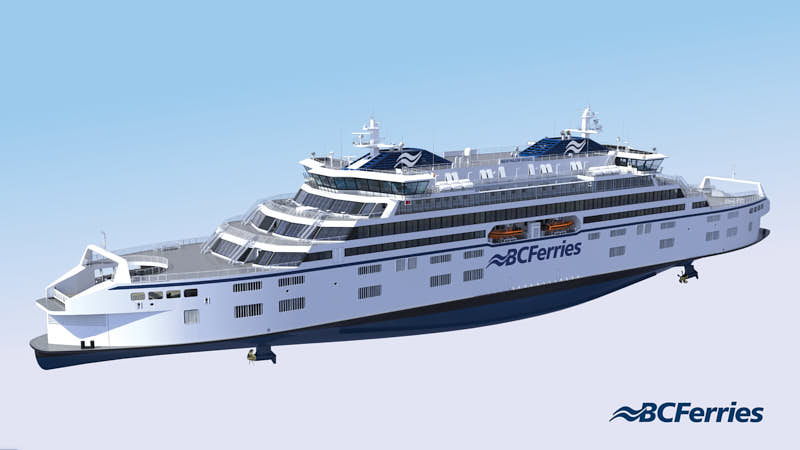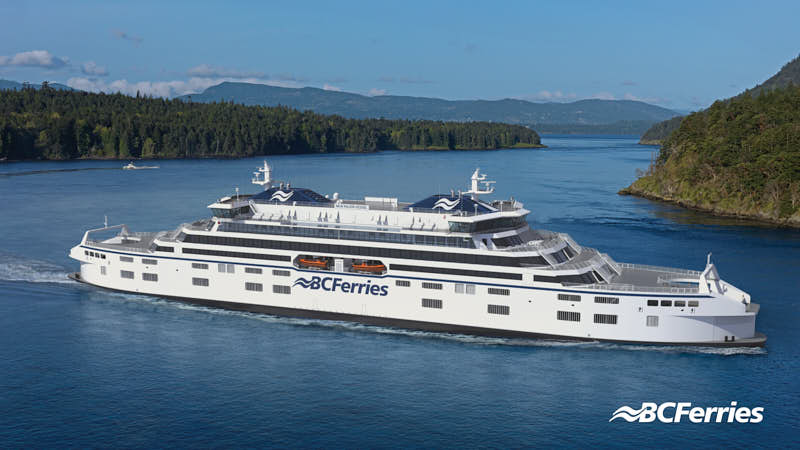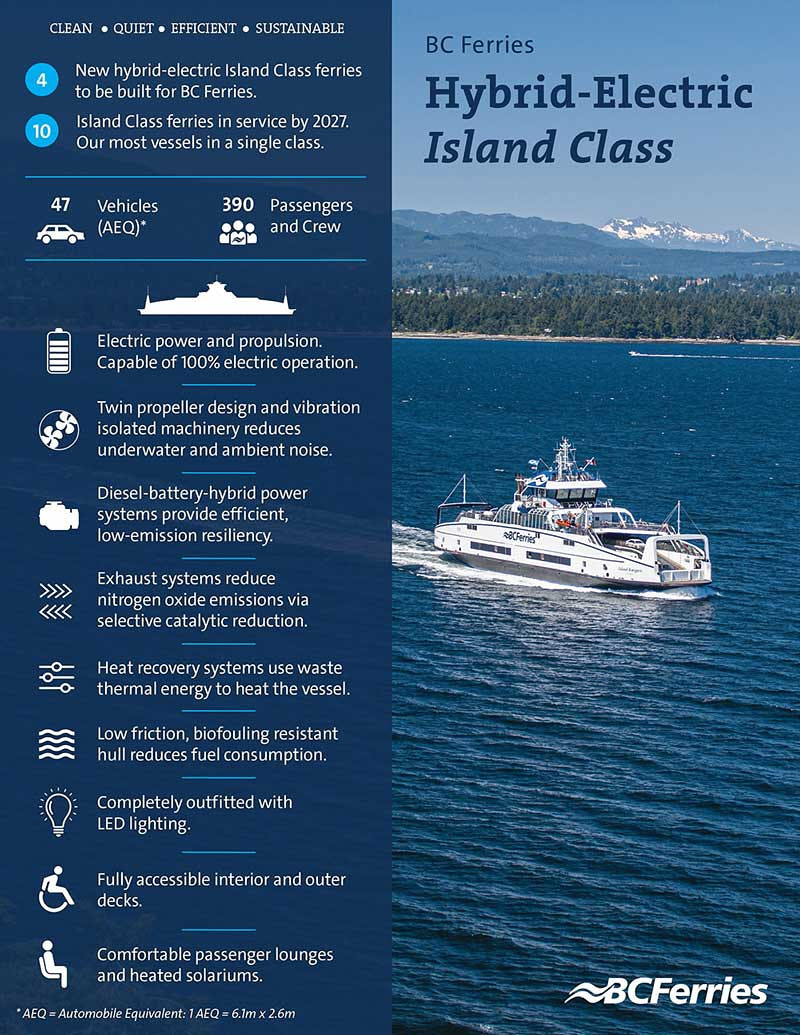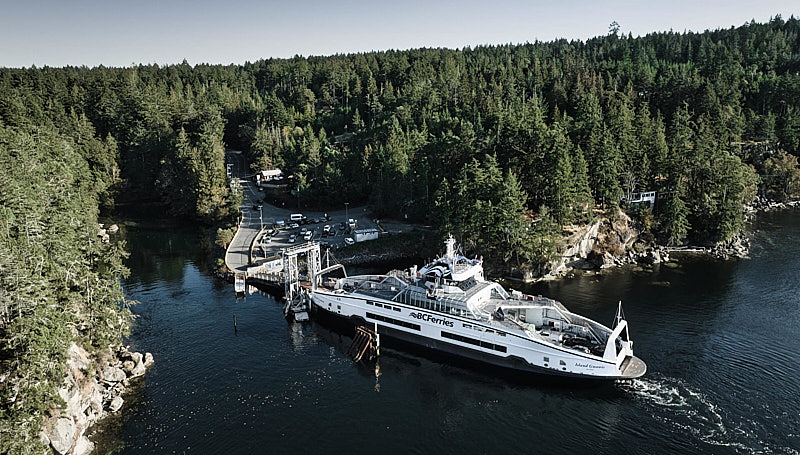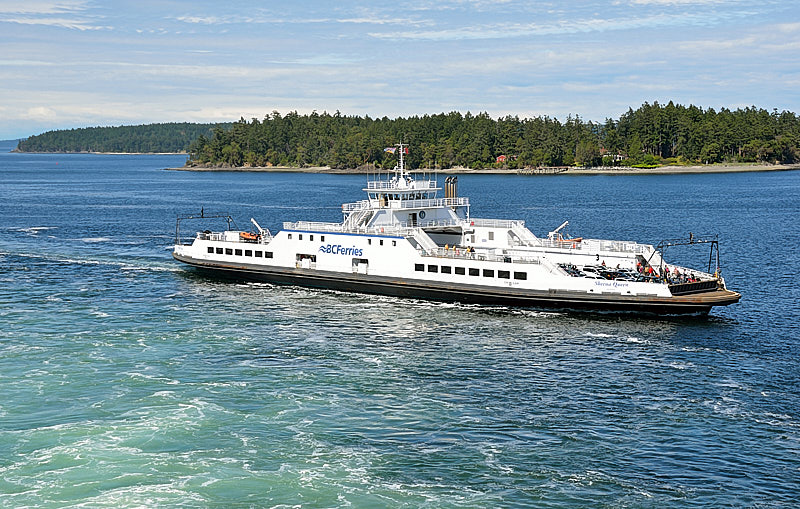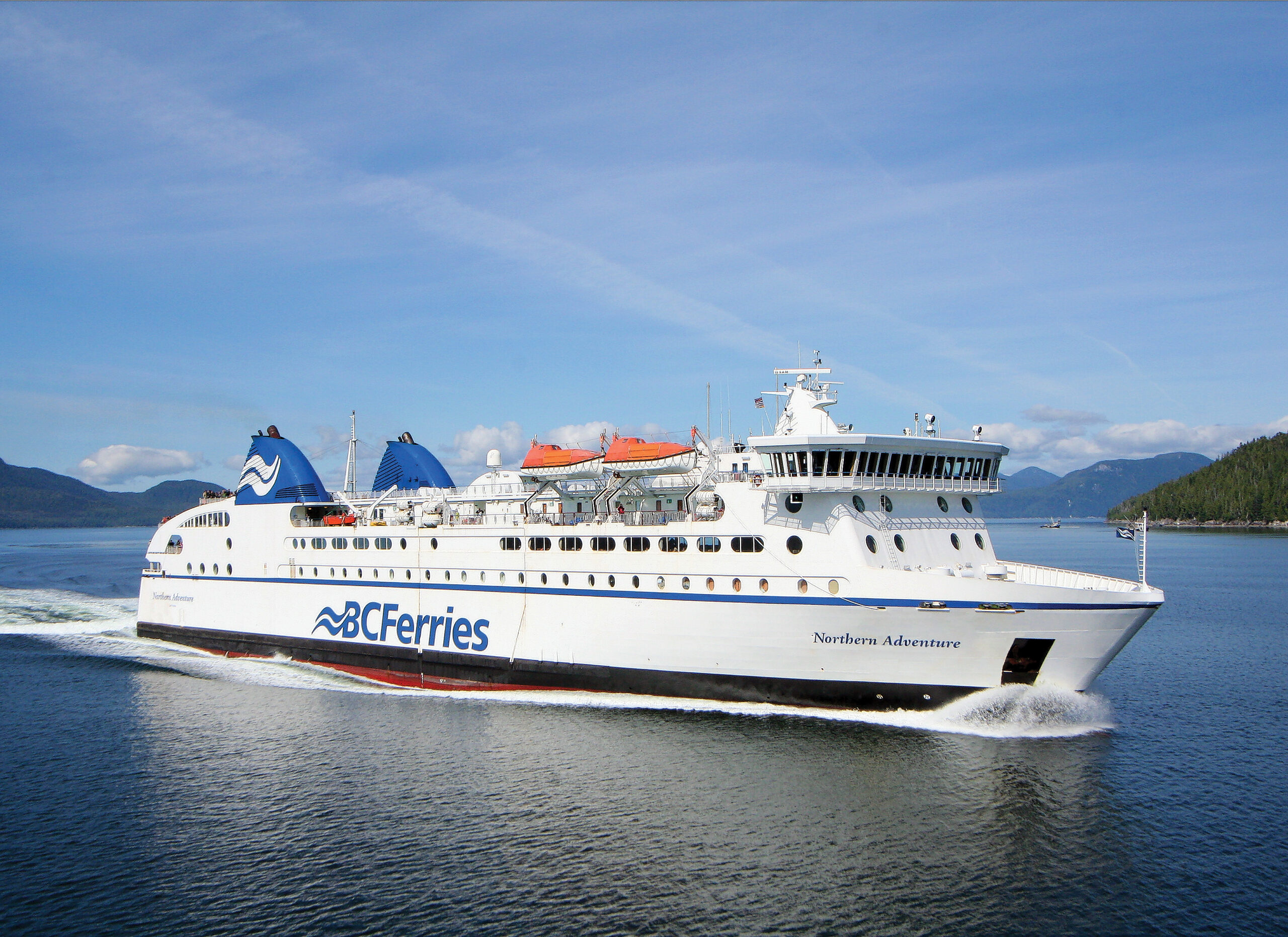Damen Shipyards Galati yard cut first steel on the first two of four, fully electric Island Class Ferries that it is building for BC Ferries, on 16 July. The ferries will be the first fully electric vessels to operate in the company’s fleet.
Operating with battery packs with the capacity to supply the power train with 2,000 kilowatt-hour of electricity, the vessels will carry up to 47 vehicles and 390 passengers.
Damen will also supply BC Ferries with the required charging towers. The ferries will recharge efficiently during (dis)embarkation of passengers, using renewable electricity.
The vessels are based on Damen’s double-ended RoRo 8113 E3 model. The design features Damen’s in-house quality label E3, standing for Environmentally Friendly, Efficient in Operation and Economically Viable.
Photo from left to right: Ed Hooper (Executive Director Shipbuilding BCF), Mark Vermeulen (Managing Director Damen OSV), Richard Tijpens (PM Damen OSV) Dragos Cojocariu (PM Damen Shipyards Galati), David Tolman (Program Manager BCF)



